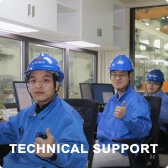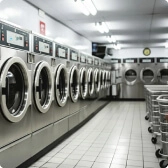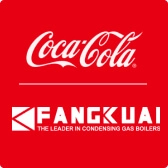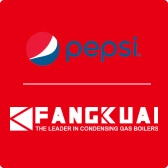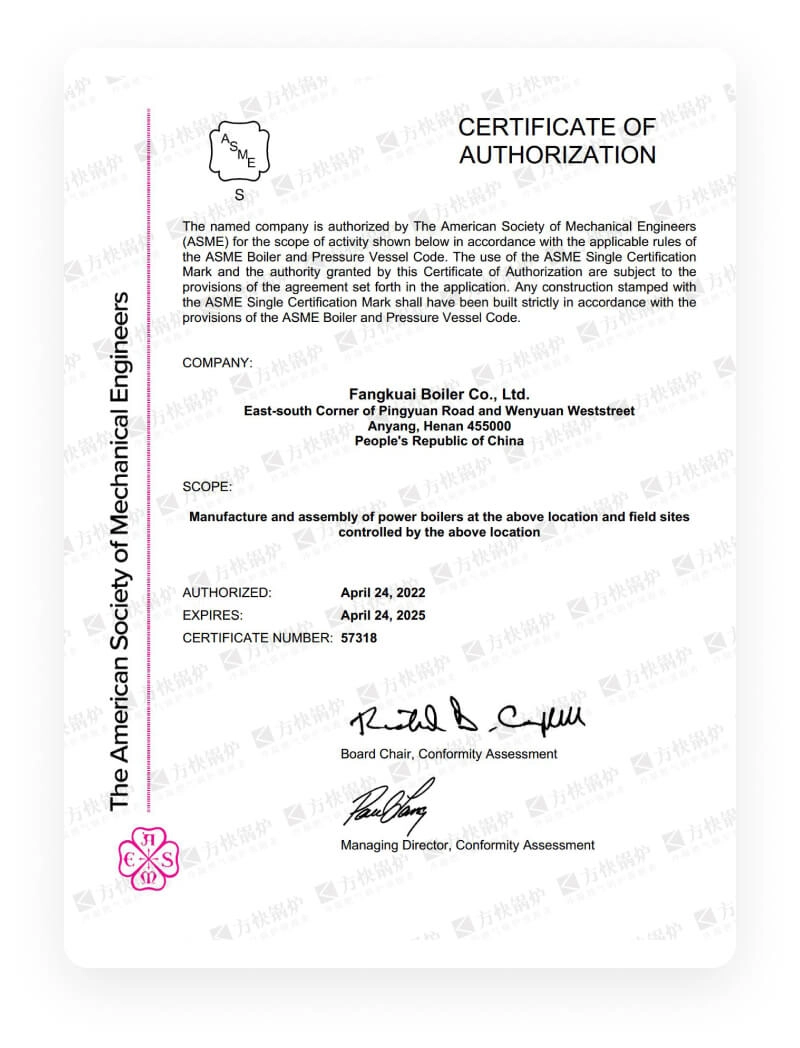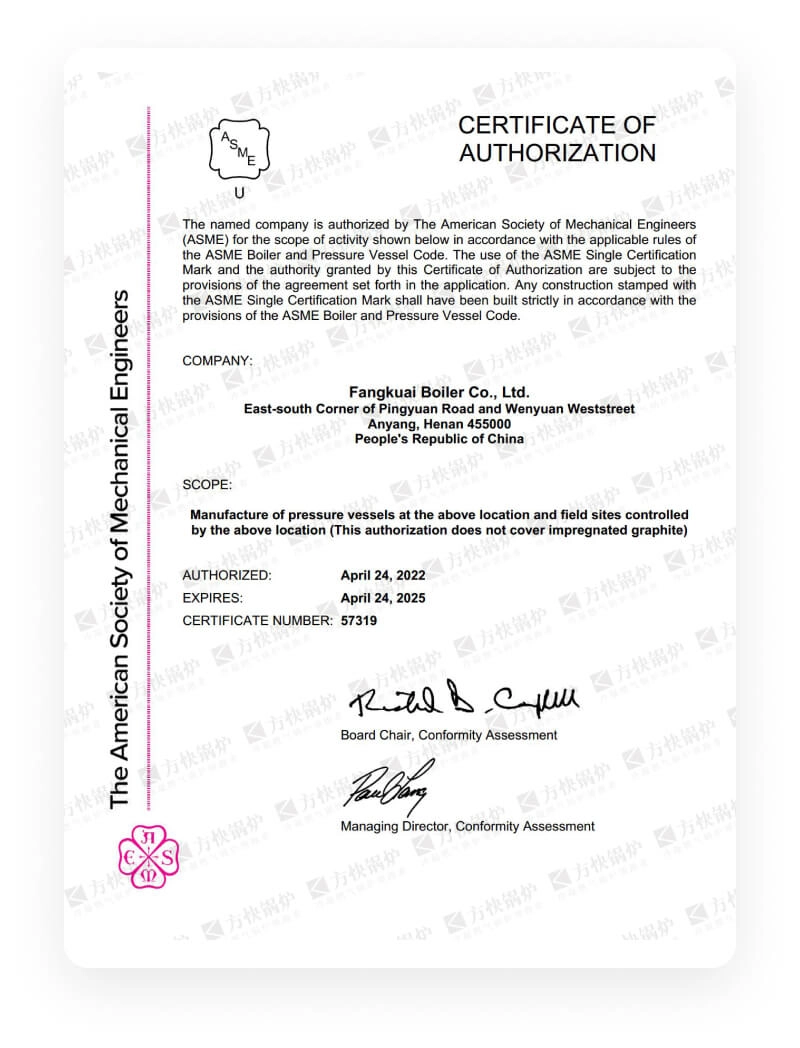Key Considerations When Purchasing Boilers for Heating Purposes
date: 2024-08-31
Page preview:
Introduction
When it comes to selecting boilers in the heating industry, making the right choice is crucial for ensuring optimal performance and cost-effectiveness. With a multitude of factors to consider, navigating the boiler market can be overwhelming. From understanding the different types of boilers to evaluating efficiency ratings and considering installation requirements, the process can be complex. In this blog post, we will delve into the key factors that individuals and businesses should keep in mind when purchasing boilers for heating purposes. By exploring these factors in detail, you can make informed decisions that align with your specific needs and goals. Let's dive into the essential aspects of selecting the perfect boiler for your heating needs.

Factors to Consider When Purchasing Boilers
Boiler Type
The type of boiler you choose plays a significant role in determining its efficiency and suitability for your heating needs. Consider factors such as combi boilers, system boilers, and conventional boilers, each offering unique features and benefits. Understanding the differences between these types can help you make an informed decision that aligns with your heating requirements. Whether you prioritize space-saving combi boilers or prefer the versatility of system boilers, selecting the right type is crucial for optimal performance.
Size and Capacity
Choosing a boiler with the appropriate size and capacity is essential to ensure efficient heating and energy usage. Factors such as the size of your space, insulation quality, and climate conditions should be considered when determining the ideal boiler size. Oversized boilers can lead to energy waste, while undersized ones may struggle to meet your heating demands. By evaluating your heating needs and selecting a boiler with the right size and capacity, you can enhance energy efficiency and reduce operating costs.
Fuel Source
The fuel source for your boiler impacts its operational costs and environmental footprint. Evaluate options such as gas boilers, oil boilers, electric boilers, and biomass boilers based on factors like fuel availability, cost, and sustainability. Gas boilers are known for their efficiency, while biomass boilers offer eco-friendly heating solutions. Understanding the pros and cons of each fuel source can help you choose a boiler that aligns with your budget and environmental values.
Efficiency Ratings
Efficiency ratings play a crucial role in determining the cost-effectiveness of a boiler. High-efficiency condensing boilers can provide significant energy savings compared to standard models, translating to lower utility bills over time. By selecting a boiler with high efficiency ratings, you can maximize heat output while minimizing fuel consumption. Understanding the efficiency levels of different boilers can guide you towards a cost-effective and environmentally friendly heating solution.
Boiler Type
When it comes to selecting the right boiler for your heating needs, understanding the different types of boilers available is essential. With a range of options to choose from, including combi boilers, system boilers, and conventional boilers, each type has its unique features and benefits. Here are some key points to consider when evaluating boiler types:
-
Combi Boilers: Known for their compact size and efficiency, combi boilers are a popular choice for small spaces. They combine both heating and hot water functions in one unit, making them convenient and space-saving.
-
System Boilers: Ideal for larger homes with multiple bathrooms, system boilers store hot water in a cylinder for fast and efficient heating. They offer good water pressure and are suitable for properties with high hot water demand.
-
Conventional Boilers: Also known as heat-only boilers, conventional boilers require a separate hot water cylinder and cold-water tank. They are suitable for older properties with existing heating systems and provide consistent heating throughout the home.
By understanding the characteristics and advantages of each boiler type, you can make an informed decision that aligns with your heating requirements. Whether you prioritize space-saving solutions, high water pressure, or compatibility with existing systems, choosing the right boiler type is a crucial step in achieving efficient and effective heating for your home or business.
Size and Capacity
When it comes to selecting the size and capacity of a boiler for your heating needs, it is essential to consider various factors to ensure optimal efficiency and performance. Here are some key points to keep in mind:
-
Assessing Heating Requirements: Begin by evaluating the heating requirements of the space the boiler will serve. Factors such as the building size, insulation levels, and climate conditions play a crucial role in determining the appropriate size and capacity of the boiler.
-
Matching Boiler Size to Heating Demand: Selecting a boiler that matches the heating demand of the space is vital to avoid inefficiency or energy waste. Oversized boilers can lead to short cycling and increased operating costs, while undersized boilers may struggle to meet the heating needs effectively.
-
Considering Future Expansion: Anticipating any future expansion or changes in heating requirements is important when determining the size and capacity of the boiler. Ensuring that the boiler can accommodate potential growth or modifications will help in long-term planning and cost-effectiveness.
-
Consulting with Professionals: Seeking guidance from heating professionals or boiler experts can provide valuable insights into selecting the right size and capacity for your specific heating needs. Professionals can conduct heat loss calculations and recommend the most suitable boiler size based on accurate assessments.
By carefully evaluating the size and capacity requirements of the boiler, you can ensure that it efficiently meets your heating needs while optimizing energy usage and operational costs. Taking into account factors such as heating demand, future expansion plans, and professional advice can help in selecting the ideal boiler size for your space. Stay tuned for more insights on key considerations when purchasing boilers in the heating industry.
Fuel Source
When selecting a boiler for your heating needs, one of the critical considerations is the fuel source. Choosing the right fuel source that aligns with your resources and goals is essential for efficient operation. Options such as gas boilers, oil boilers, electric boilers, and biomass boilers offer different advantages and limitations that need to be carefully evaluated. Factors like fuel availability, running costs, and environmental impact should guide your decision-making process. It's crucial to weigh the pros and cons of each fuel source to determine the most suitable option for your heating requirements.
Gas boilers are a popular choice due to their reliability, energy efficiency, and environmental friendliness. They offer convenient distribution of heat and can be a cost-effective option for many users. Oil boilers, on the other hand, are suitable for areas with abundant oil supply but require careful consideration of storage and transportation safety. Electric boilers are ideal for locations with stable electricity supply and competitive rates, although they may have higher electricity consumption. Biomass boilers are gaining traction for their environmental advantages, but their application is still limited by technological constraints.
When evaluating the fuel source for your boiler, it's essential to consider the long-term implications on operating costs, energy efficiency, and environmental impact. Selecting a fuel source that aligns with your values and priorities can lead to sustainable heating solutions. Whether you prioritize cost-effectiveness, energy efficiency, or environmental responsibility, the fuel source you choose will have a significant impact on the performance and operation of your boiler. By conducting thorough research and consulting with industry experts, you can make an informed decision that meets your heating needs effectively.
Efficiency Ratings
When it comes to efficiency ratings for boilers, understanding this aspect is essential for maximizing performance while minimizing operational costs. Efficiency ratings indicate how effectively a boiler converts fuel into heat, providing valuable insights into energy consumption and cost savings. High-efficiency boilers are designed to utilize fuel more efficiently, resulting in lower energy bills and reduced environmental impact.
Benefits of High Efficiency
Opting for a high-efficiency boiler offers various benefits, including increased energy savings, reduced greenhouse gas emissions, and enhanced comfort levels. These boilers are engineered to extract more heat from the fuel, ensuring that a larger proportion of energy is converted into usable heat for the space. By choosing a high-efficiency model, you can enjoy a warmer environment while contributing to sustainability efforts through lower energy consumption.
Understanding Efficiency Ratings
Efficiency ratings for boilers are typically expressed as a percentage, representing the boiler's ability to convert fuel into heat. The Annual Fuel Utilization Efficiency (AFUE) rating is commonly used to measure a boiler's efficiency, indicating the percentage of fuel that is converted into heat for the home or business. A higher AFUE rating signifies a more efficient boiler that can help reduce energy costs over time.
Considerations for Efficiency
When evaluating efficiency ratings, factors such as the boiler's design, technology, and fuel source play a significant role in determining its performance. Modern high-efficiency condensing boilers utilize advanced features like secondary heat exchangers to extract additional heat from combustion gases, improving overall efficiency. Consider the AFUE rating and energy-saving features when selecting a boiler to ensure optimal performance and cost-effectiveness.
Long-Term Savings
While high-efficiency boilers may have a higher initial cost compared to standard models, the long-term savings they offer can outweigh the upfront investment. By investing in a high-efficiency boiler, you can benefit from lower energy bills, reduced maintenance costs, and potential rebates or incentives for energy-efficient upgrades. Evaluating the total cost of ownership and potential savings over the boiler's lifespan is crucial for making a financially sound decision.
System Design
When it comes to system design for your boiler, there are several crucial factors to consider to ensure optimal performance and efficiency. Understanding the intricacies of the system design can lead to a more energy-efficient heating solution tailored to your specific needs. Here are some key points to keep in mind:
-
Temperature Requirements: Determining the appropriate system design temperature is essential for achieving efficient heating. Lower supply temperatures, such as those used in in-floor radiant heat systems, can help reduce energy consumption and enhance comfort levels.
-
Hydronic System Considerations: Evaluating the hydronic system design, including piping layout and circulation pumps, is vital for maximizing the efficiency of the boiler. Proper system design can contribute to even heat distribution and minimize energy waste.
-
Integration with Other Heating Components: Integrating the boiler system with other heating components, such as thermostats and zone control systems, can optimize energy usage and comfort levels. Coordinating the operation of these components ensures a cohesive and efficient heating system.
-
Maintenance and Monitoring: Implementing a maintenance schedule and monitoring system performance regularly can help identify potential issues early on and prevent costly repairs. Proper maintenance and monitoring are essential for ensuring the longevity and efficiency of the boiler system.
By carefully considering these aspects of system design, you can create a heating system that meets your heating needs effectively while maximizing energy efficiency and comfort. Taking the time to evaluate the temperature requirements, hydronic system design, integration with other components, and maintenance protocols can pave the way for a reliable and cost-effective heating solution. Remember, a well-designed system is the foundation for a successful and efficient boiler operation.
Control Strategy
When it comes to optimizing the performance of your boiler system, implementing a strategic control strategy is paramount. By upgrading outdated controls to modern devices, such as weather-dependent outdoor reset controls, you can effectively save energy and improve overall efficiency. These advanced controls adjust the boiler's operation based on external temperature conditions, ensuring that your system operates at peak performance levels. A well-thought-out control strategy not only enhances efficiency but also contributes to reducing energy consumption and operating costs.
Incorporating a control strategy that aligns with your heating requirements can significantly impact the overall efficiency of your boiler system. By fine-tuning the controls to match the specific needs of your space, you can maximize energy savings and achieve optimal comfort levels. Whether it's setting customized schedules, adjusting temperature settings, or implementing setback controls, a tailored control strategy can help you achieve a balance between comfort, energy efficiency, and cost-effectiveness. With the right control strategy in place, you can enjoy a well-regulated heating system that meets your needs effectively.
When evaluating control strategies for your boiler system, it's essential to consider factors such as system design, building layout, and heating preferences. By understanding the unique requirements of your space, you can tailor the control strategy to suit your specific needs and optimize performance. Whether you opt for programmable thermostats, zoning controls, or advanced heating management systems, choosing the right control strategy can make a significant difference in the efficiency and comfort of your heating system. Investing in a smart control strategy is not only a step towards energy efficiency but also a way to enhance the overall performance of your boiler system.
A well-designed control strategy can also contribute to prolonging the lifespan of your boiler system by ensuring that it operates at its full potential. By implementing controls that regulate the boiler's operation based on demand and external conditions, you can prevent unnecessary wear and tear and optimize energy usage. Additionally, advanced control systems offer features such as remote monitoring and diagnostics, allowing you to track performance, identify issues promptly, and take corrective actions. With a proactive control strategy in place, you can minimize downtime, reduce maintenance costs, and ensure the long-term reliability of your boiler system.
In conclusion, the control strategy you choose plays a crucial role in the efficiency, comfort, and longevity of your boiler system. By investing in modern controls and tailoring a strategy that meets your specific heating needs, you can optimize performance, reduce energy consumption, and enhance overall system reliability. Whether it's adjusting temperature settings, scheduling operation times, or utilizing smart features, a well-executed control strategy can transform your boiler system into a model of energy efficiency and cost-effectiveness. Embrace the power of control strategies to unlock the full potential of your heating system and enjoy a comfortable, efficient, and sustainable environment.
Venting
When it comes to selecting a boiler, one crucial aspect to consider is venting. Proper venting ensures the safe and efficient operation of the boiler, making it essential for the overall functionality of the heating system. Venting plays a significant role in the combustion process, allowing for the proper release of exhaust gases and maintaining optimal airflow. Different types of boilers may require specific venting options, such as direct venting for condensing boilers, to ensure proper ventilation and prevent the buildup of harmful gases within the building.
Venting considerations should align with the specific requirements of the boiler system and the building structure. Direct venting, commonly used for condensing boilers, involves a sealed combustion system that draws air from outside the building for combustion and expels exhaust gases through a separate vent. This method enhances safety by preventing the recirculation of combustion byproducts and ensures efficient operation. Understanding the venting requirements of the chosen boiler type is essential for proper installation and compliance with safety regulations. It is important to consult with a professional to determine the most suitable venting solution for your heating system.
In addition to safety concerns, venting also impacts the energy efficiency of the boiler system. Proper venting design can minimize heat loss and maximize the transfer of heat energy to the building, contributing to overall energy savings. By optimizing the venting configuration and ensuring airtight seals, businesses can enhance the performance of their heating system and reduce operating costs. Venting considerations should be integrated into the overall system design to create a well-balanced and efficient heating solution that meets the specific needs of the building and occupants.
In conclusion, venting is a critical component of the boiler selection process that influences safety, efficiency, and overall performance. By prioritizing proper venting design and installation, businesses can ensure the safe operation of their heating system and maximize energy savings. Consulting with professionals and adhering to safety guidelines are essential steps in choosing the right venting solution for your boiler. With careful consideration and attention to detail, businesses can create a reliable and efficient heating system that meets their heating needs effectively.
Sizing and Installation
When it comes to the sizing and installation of boilers, precision is key. Selecting the right size boiler for your space is essential to ensure efficient heating without unnecessary energy waste. Oversizing a boiler can lead to inefficiency and higher operating costs, while undersizing can result in inadequate heat output. It's crucial to calculate the heating requirements of your building accurately, taking into account factors such as insulation levels, climate conditions, and the number of occupants. By choosing the correct size boiler, you can optimize energy usage and enhance overall comfort levels within your space.
Proper installation plays a significant role in the performance and longevity of your boiler system. Following manufacturer guidelines and hiring experienced professionals for installation can prevent potential safety hazards and ensure optimal efficiency. Whether you opt for a DIY installation or enlist the help of experts, attention to detail and adherence to best practices are paramount. Correctly sizing the boiler, positioning it correctly, and connecting it to the heating system with precision are crucial steps in the installation process. By investing time and effort in the installation phase, you can set the foundation for a reliable and efficient heating system.
Considering the upfront costs and payback period is also vital when sizing and installing a boiler. While high-efficiency boilers may come with a higher initial investment, the long-term energy savings and reduced operating costs can offset this expense over time. Evaluating the potential payback period based on energy savings and efficiency gains can help you make a financially sound decision. Additionally, factoring in the reliability and brand reputation of the boiler can provide assurance of quality performance and reliable operation. With careful consideration of these aspects, you can make a well-informed choice that aligns with your heating needs and budget constraints.
In conclusion, the sizing and installation of boilers require thorough planning and attention to detail to ensure optimal performance and cost-effectiveness. By selecting the right size boiler for your space, following proper installation procedures, and considering the upfront costs and payback period, you can set the stage for a reliable and efficient heating system. Prioritizing safety, efficiency, and long-term savings in the sizing and installation process will contribute to a comfortable and sustainable heating solution for your home or business. Make informed decisions and invest in a boiler that meets your needs effectively.
Upfront Costs and Payback
When considering the upfront costs of purchasing a boiler, it's essential to look beyond the initial investment and evaluate the long-term payback potential. While high-efficiency boilers may come with a higher price tag upfront, the energy savings and efficiency gains they offer over their lifespan can result in significant cost savings. By calculating the payback period based on energy consumption patterns and fuel costs, businesses can make a financially sound decision that balances upfront investment with long-term benefits.
Evaluating the reliability and brand reputation of a boiler manufacturer is also crucial when factoring in upfront costs and payback considerations. Opting for a reputable brand known for producing reliable and durable boilers can provide peace of mind and assurance of long-term performance. Checking consumer reviews and professional feedback on the brand's track record can offer valuable insights into the reliability of the boiler and its potential for cost-effective operation over time.
Additionally, businesses should take into account any potential maintenance or servicing costs when assessing upfront costs and payback. Choosing a boiler model that is easy to maintain and has readily available spare parts can help minimize maintenance expenses and downtime, contributing to overall cost savings. Factoring in the cost of regular servicing and maintenance can ensure the boiler operates efficiently and reliably, ultimately impacting the payback period and total cost of ownership.
By weighing the upfront costs against the long-term payback potential, businesses can make informed decisions that align with their budget constraints and efficiency goals. Considering factors such as energy savings, reliability, and maintenance costs can help businesses select a boiler that not only meets their heating needs effectively but also delivers cost-effective operation and long-term performance. A thorough evaluation of upfront costs and payback considerations can lead to smart investments that optimize energy efficiency and reduce operating expenses in the long run.
Reliability and Brand Reputation
When it comes to investing in a boiler for your heating needs, reliability and brand reputation are paramount considerations. Opting for a trusted brand known for its quality products and excellent customer service can provide you with peace of mind. By choosing a reputable brand, you can ensure that your boiler is built to last and will perform reliably for years to come. Furthermore, reputable brands often offer comprehensive warranties and dedicated after-sales support, allowing you to address any issues promptly and efficiently.
Checking consumer reviews and professional feedback on different boiler models can give you valuable insights into their performance and reliability. Real-world experiences from other users can help you gauge the overall satisfaction levels and durability of the boilers you are considering. By researching and comparing reviews, you can make a more informed decision about which brand and model best suit your heating requirements and budget. Remember, investing in a reliable boiler from a reputable brand is an investment in the long-term comfort and efficiency of your heating system.
Reliability is key when it comes to heating equipment, as unexpected breakdowns can disrupt your daily operations and lead to costly repairs. By choosing a boiler from a brand with a proven track record of reliability, you can minimize the risk of downtime and ensure uninterrupted heating during colder months. Additionally, a well-established brand is more likely to have a network of qualified technicians and service providers, making it easier to access maintenance and repair services when needed. Prioritizing reliability and brand reputation can save you time, money, and stress in the long run.
In conclusion, when selecting a boiler for your heating needs, prioritizing reliability and brand reputation is essential. By opting for a reputable brand with a history of producing quality, reliable products, you can enjoy peace of mind knowing that your heating system is in good hands. Take the time to research different brands, read reviews, and consider factors such as warranties and after-sales support. Investing in a reliable boiler from a trusted brand is a smart decision that can ensure the comfort, efficiency, and longevity of your heating system.
Energy Efficiency Requirements
In conclusion, when it comes to selecting boilers for the heating industry, there are numerous factors to consider to ensure optimal performance and cost-effectiveness. From understanding the different types of boilers to evaluating efficiency ratings and considering installation requirements, the process can be complex. By taking into account factors such as boiler type, size and capacity, fuel source, system design, and control strategy, individuals and businesses can make informed decisions that align with their specific needs and goals. Additionally, considering upfront costs, payback period, reliability, and brand reputation can help in selecting a boiler that meets both short-term and long-term requirements. Energy efficiency requirements play a significant role in the decision-making process, as it not only impacts the environmental sustainability of the heating system but also influences operating costs. By prioritizing energy efficiency and selecting a boiler that meets regulatory standards, individuals and businesses can contribute to a more sustainable and cost-effective heating industry. Remember, a well-informed decision today can lead to long-term benefits and savings in the future.


